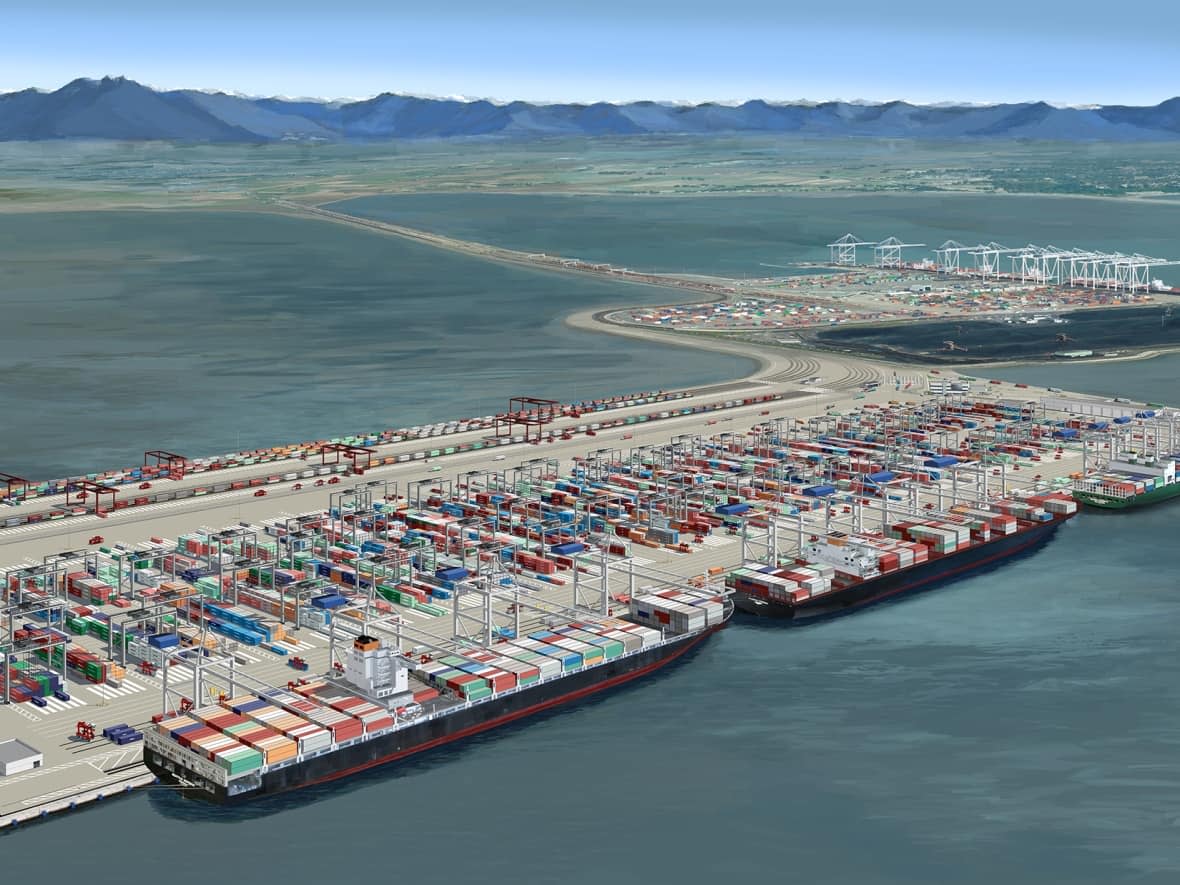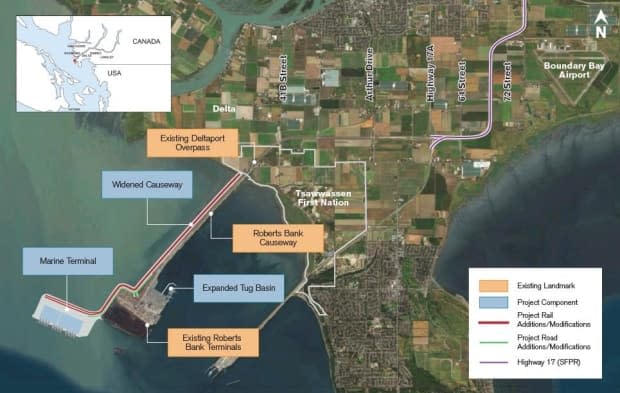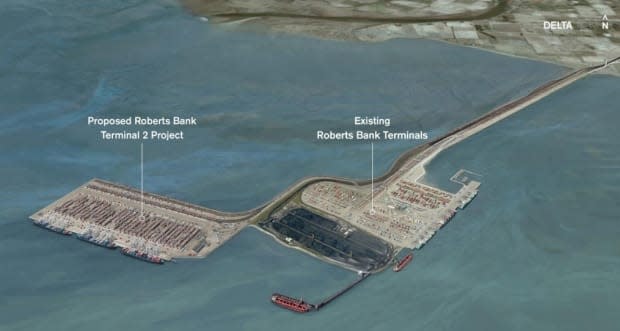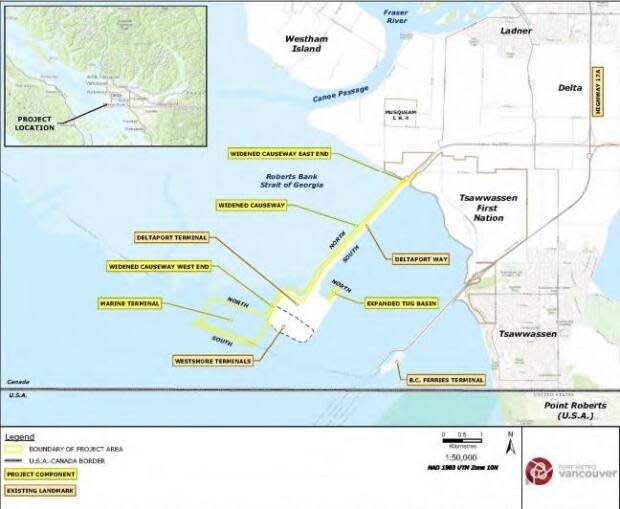Environmental alliance launches legal challenge against expansion of B.C. container port

A group of Canadian conservationists says it has launched a legal challenge against Ottawa's $2 billion plan for an expanded container terminal in Delta, B.C.
The David Suzuki Foundation, Georgia Strait Alliance, Raincoast Conservation Foundation and the Wilderness Committee say they have filed an application for a judicial review in federal court under the Canadian Environmental Assessment Act.
"The federal government has failed Canadians by approving this new terminal. Their own environmental review showed this project could condemn southern resident killer whales, and the chinook salmon they depend on, to extinction," said Jeffery Young, senior science and policy analyst for the David Suzuki Foundation.
The 2020 report by a federal review panel found a new terminal would result in the destruction of the protected killer whale's critical habitat.
But in April, Ottawa announced it had approved the expansion plans — which would see an additional 2.4 million 20-foot shipping containers go through the Roberts Bank Terminal 2 each year — saying the move will open up Canada's throttled marine supply chain.
Federal Natural Resources Minister Jonathan Wilkinson said at that time that ports are forecast to be approaching capacity by the early 2030s and the expanded terminal will increase capacity by 60 per cent.
"More than $275 billion of trade passes through the Vancouver Fraser Port Authority every year. Canada's Pacific Gateway is the country's most important trade corridor," Wilkinson said.
The conservation groups argue that some of the largest salmon runs in the world migrate through Roberts Bank as juveniles and adults and that the Salish Sea provides critical habitat for the remaining 73 endangered southern resident killer whales.
"What's the purpose of laws to protect the public, the environment and wildlife from irreversible harm if the government continuously overrides them in the name of supposed 'economic' benefits?" said Charlotte Dawe, conservation and policy campaigner for the Wilderness Committee.

Shayoni Mehta with Ecojustice said according to the Species at Risk Act, the project cannot be deemed lawful.
"We urge the government to adhere to its own laws," Mehta said.
The campaigner says all involved parties will now exchange evidence and written submissions, and a hearing could be scheduled later this year.
"The litigation itself does not prevent the proponent beginning construction, but this project also requires B.C.'s approval and additional federal permits before it can proceed," she said.
Expansion has 370 conditions
The project has been in the works for over a decade and would launch with 370 legally binding conditions, including protection for fish habitat and the creation of routes for them to navigate the environment.
"I have spent many years of my life fighting for more sustainable and healthy oceans and a sustainable and healthy planet," Wilkinson said in April. "I am very focused on ensuring that important environmental issues are effectively addressed."

Wilkinson said the conditions should reduce some existing shipping impacts on the environment.
The Vancouver Fraser Port Authority says it signed mutual benefit agreements with 26 Indigenous groups who provided their support or consent for the project.
"Our comprehensive, multi-phased consultation program has helped ensure the project is guided by Indigenous knowledge, values, and environmental and cultural stewardship," according to a March 17 statement from the authority.
The Port of Vancouver says it will cover the estimated $2 billion tab for construction through private investment and long-term leases of port facilities and operator fees. It adds a final investment decision still needs to be reached, and regulatory approvals and permits still need to be sought. It's estimated the terminal could take six years to build.



